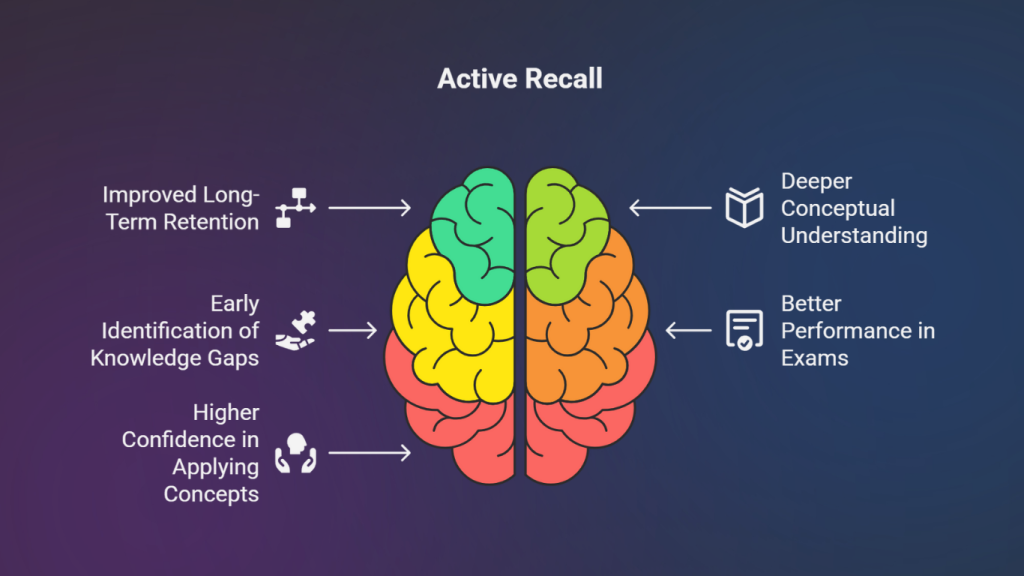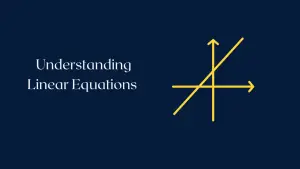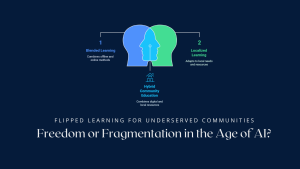In today’s information-rich world, learning is not just about absorbing facts, but about remembering and applying them meaningfully. Among the most effective, research-backed strategies for long-term knowledge retention is Active Recall. At Jyoti EdLab, we recognize this technique as essential for transforming both teaching and learning outcomes. This blog explores what Active Recall is, why it matters, and how teachers and students can implement it—supported by modern tools and AI.
What is Active Recall?
Active Recall is a learning method that involves retrieving information from memory instead of reviewing it passively. Unlike simply re-reading textbooks or highlighting, this method makes the brain work harder to bring back information—thereby reinforcing learning.
Example: Instead of re-reading a science chapter, a student closes the book and tries to write or say everything they remember from that chapter. This mental effort significantly improves retention.

Why Active Recall is Important
Cognitive psychology and neuroscience research consistently show that retrieval strengthens memory pathways and deepens understanding. Active Recall is not only more effective than re-reading or passive revision but also more efficient over time.
Key benefits include:
- Improved long-term retention
- Deeper conceptual understanding
- Early identification of knowledge gaps
- Better performance in exams
- Higher confidence in applying concepts
Why Teachers Should Use Active Recall in Classrooms
At Jyoti EdLab, we believe in creating classrooms where students are not just consumers of information but active participants in their learning journey.
Teachers can use Active Recall by:
- Starting lessons with short quizzes from previous topics
- Asking open-ended questions during teaching
- Encouraging peer teaching and explanation
- Assigning “write what you recall” tasks instead of summaries
- Ending sessions with exit questions to reinforce retention
This approach ensures that learning sticks and becomes usable beyond exams.
How Students Can Practice Active Recall
Students often confuse familiarity with mastery. Active Recall breaks that illusion by forcing them to recall knowledge without prompts. It helps them understand what they truly know—and what they don’t.
Methods include:
- Flashcards with questions on one side and answers on the other
- Self-quizzing after studying a topic
- Blurting: Writing all you remember on a blank page
- Teaching the topic to someone else or speaking it out loud
- Past paper practice without referring to notes
Effective Tools for Active Recall
Manual tools:
- Flashcards (paper-based)
- Question-and-answer notebooks
- Diagrams on whiteboards
Digital tools:
| Tool | Function |
| Anki | Spaced repetition flashcards |
| Quizlet | Flashcards with test and game modes |
| Google Forms | Custom quiz creation |
| RemNote | Combines notes and flashcards |
| Notion | Custom databases and templates for Q&A |
Using AI to Enhance Active Recall
Artificial Intelligence adds new capabilities to Active Recall strategies by making them personalized, scalable, and efficient.
Applications of AI in Active Recall:
- Use tools like ChatGPT to generate custom quizzes from textbooks, lecture notes, or PDFs.
- Automatically create flashcards from content using AI plugins for Notion or Anki.
- Convert notes into questions using AI summarizers.
- Practice oral recall using voice-based AI assistants or bots.
This makes recall practice smarter and more engaging, especially for self-paced or home-based learners.
How Jyoti EdLab is Integrating Active Recall
Our aim is to make Active Recall a routine part of both teaching and learning. Here’s how:
For Teachers:
- Incorporate Active Recall techniques in daily lessons
- Develop AI-assisted quiz banks and use them in class
- Train students in self-questioning and peer questioning
- Use AI to generate feedback from student performance on recall tasks
For Students:
- Maintain recall notebooks with spaced review
- Use digital tools and AI to personalize study plans
- Practice regular low-stakes testing and teaching
- Join peer-led Active Recall study circles
Active Recall is more than a technique—it’s a shift in how we approach learning. It aligns with Jyoti EdLab’s mission to equip learners with deeper understanding, independent thinking, and confidence in applying knowledge.
By combining the science of learning with the power of AI, we can unlock every learner’s full potential. Let us help you implement Active Recall practices in your school or learning program. Reach out to Jyoti EdLab to learn more about our customized toolkits, AI integrations, and teacher training programs designed to make learning truly memorable.



